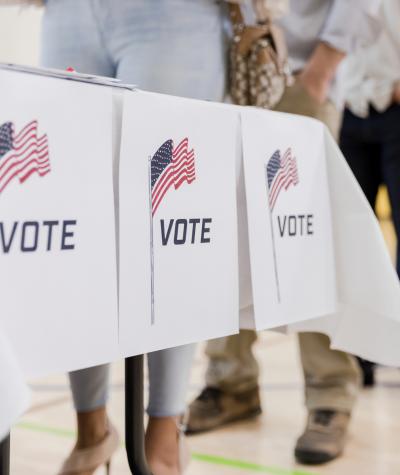The U.S. Court of Appeals for the 11th Circuit affirmed the district court ruling in Jones v. DeSantis, finding it unconstitutional to deny people with past felony convictions the right to vote based on their inability to pay fines, fees, and restitution.
The unanimous panel decision upholds the district court’s preliminary injunction of a Florida law which sought to condition voting rights restoration on the payment of restitution, fines, and fees as it applied to the plaintiffs in the case.
But the decision goes further in announcing a landmark principle that requiring payment of legal financial obligations as a condition of voting is unconstitutional as applied to those who are genuinely unable to pay.
The court’s decision affirms that lack of wealth cannot be a barrier to one’s ability to vote. Two courts have now recognized that Florida can’t deny people the right to vote based on the ability of citizens to pay.
In its decision, the court held longstanding equal protection principles prohibit wealth discrimination in the context of rights restoration for people with felony convictions, and that the state cannot prevent the plaintiffs from voting based solely on their genuine inability to pay legal financial obligations.
The case will proceed in the U.S. District Court for the Northern District of Florida with a full trial on the merits in Tallahassee on April 6.
On Nov. 6, 2018, voters in Florida passed a constitutional amendment automatically restoring voting rights to people with felony convictions, with certain exceptions.
The measure, known as Amendment 4, restored voting rights “upon completion of all terms of sentence, including parole or probation.” It passed by an almost two-thirds margin.
In response to Amendment 4, the state legislature passed a law, which redefined “completion of all terms of sentence” to require full payment of restitution, fines, and fees. Specifically, the law requires repayment of all money ordered by the court “as a part of the sentence or that are ordered by the court as a condition of any form of supervision.”
CLC filed a lawsuit challenging the law the same day it was signed, and currently represents three individual plaintiffs who would otherwise be denied the right to vote under SB 7066 because they are unable to pay off their fines and fees: Bonnie Raysor of Boynton Beach, Diane Sherrill of St. Petersburg and Lee Hoffman of Plant City.
Campaign Legal Center’s Danielle Lang, along with cooperating counsel Julie Ebenstein of the ACLU, argued the case before the Eleventh Circuit.
Learn more about Jones v. DeSantis.
